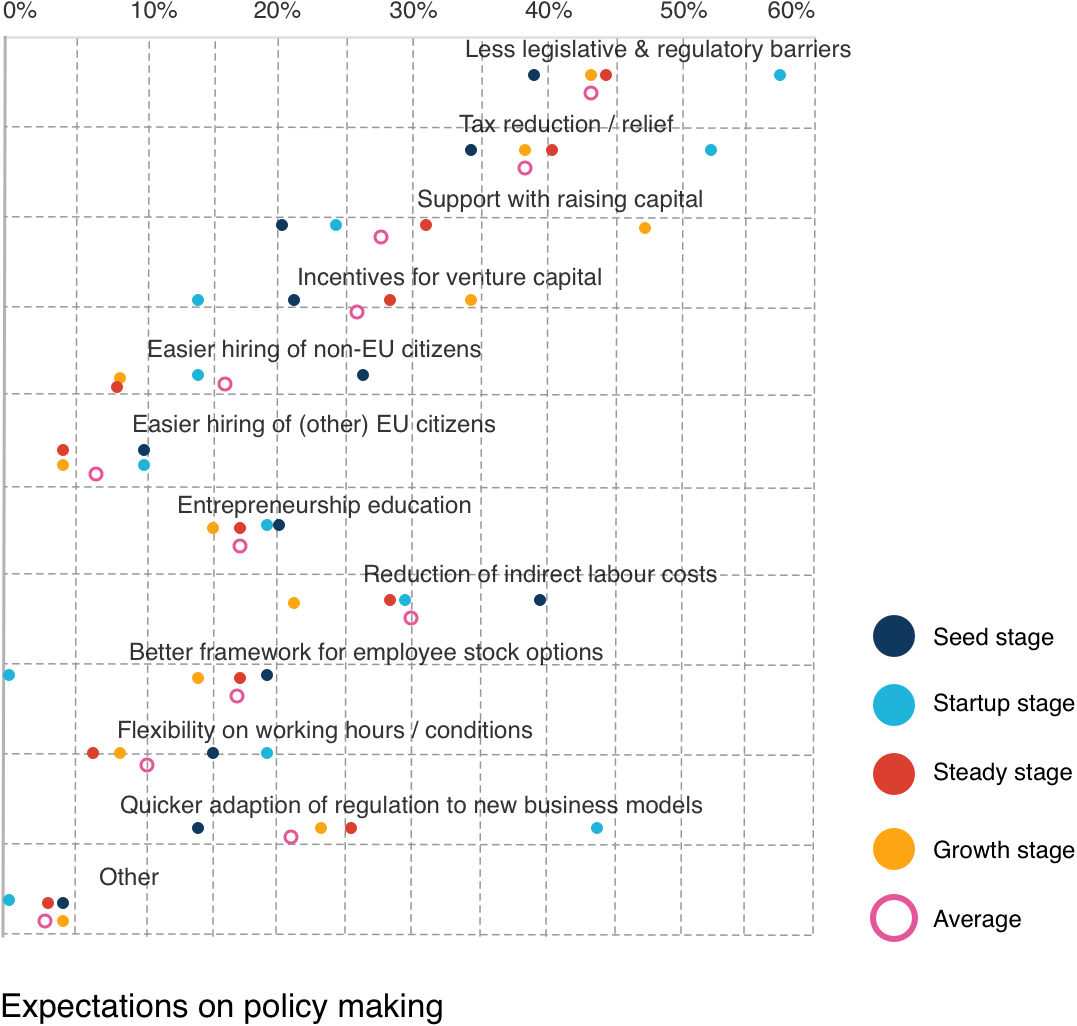Startups are a critical element for the economic vitality of any country.
They also are the pipeline for SMEs and future high-growth firms.
Across Europe, startups contribute to make countries economically and socially vibrant by redefining the technological landscape and creating the markets of tomorrow.
It is therefore important to analyse the potential of startups as future drivers of economic growth and job
creation within the European Union, and to provide insights to help policy makers design strategies that
foster the development of these important actors.
Download Full Report







